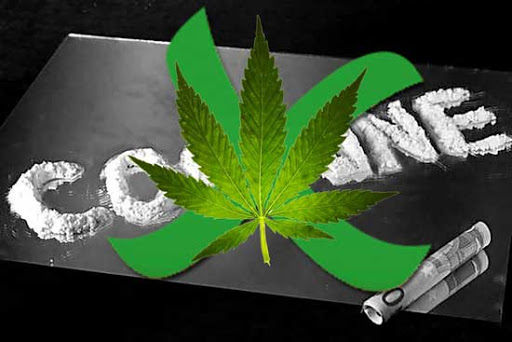New Study Confirms CBD’s Effectiveness in Treating Cocaine Addiction
Recently, the journal “Pharmacological and Biochemical Influences on Behavior” published the results of a meta-analysis of more than a dozen previously released studies on the use of CBD as a treatment for psychological and physiological dependence on cocaine. This work confirms, based on data from animal studies, that the cannabinoid is highly effective in combating impulses related to stimulant use, suggesting that the substance could demonstrate a similar therapeutic effect in humans.
Overview of the Research
The meta-analysis reviewed 14 individual scientific studies published over the past five years. In some of these studies, animals received regular doses of cocaine mixed with food or via injections, while in others, the subjects self-administered the drug by activating levers that delivered the “reward” instead of food. Overall, both types of experimental models showed that most animals quickly developed a strong psychological dependence on the stimulant, experiencing significant irritability and physical discomfort when unable to access the drug.
In both cases, once the subjects began to display observable symptoms of cocaine dependence and withdrawal after stopping use, researchers started administering CBD extracts, either as injections or as supplements to food and water.
Key Findings
The experiments found that regular use of CBD gradually reduced the psychological and physiological symptoms of cocaine dependence in the subjects. For example, according to a 2018 study, a daily dose of CBD extract at 20 milligrams per kilogram of body weight reduced the animals’ drug consumption by about half compared to the control group after just 10 days. Another 2019 study noted that administering a similar dose of CBD 30 minutes before testing significantly reduced the animals’ urge to self-administer cocaine.
However, the authors of the meta-analysis point out a common detail: CBD did not have the same effect at lower doses than those specified above.
Effective Dosage and Mechanisms
Authors of another study noted that the effective threshold for CBD’s action appears to be a dose of 10 mg/kg. “Increasing the dose of CBD extract raised the stimulation threshold of the brain’s pleasure centers in the test animals, which reduced their activation when using cocaine and weakened the impulses driving drug use for pleasure,” the researchers concluded.
Another study suggests that this effect may be related to CBD’s general sedative influence on the body and nervous system, noting reduced anxiety and stress in animals that received CBD before or after cocaine use.
“Most likely, the reduced interest in using new doses of cocaine among animals that received CBD is directly related to the substance’s ability to suppress dopamine production and the activity of receptors interacting with this neuromodulator,” the study’s authors concluded. They also suggested that CBD may stimulate structural changes in the memory centers of the brain, suppressing memories of the stimulant’s effects and thereby reducing the psychological craving to repeat the experience.
Additional Positive Effects
Additionally, the authors of the meta-analysis reported that the reviewed studies also noted several positive physiological effects of CBD, including protective and restorative impacts on the liver and brain tissues of animals that had begun to show the consequences of regular stimulant use.
Implications for Treatment
“Based on all the factors studied, it can be confidently stated that CBD extracts may be used as an effective means to enhance currently widespread cognitive therapy methods for cocaine addiction. In particular, the substance suppresses the activity of the brain’s reward system, reducing psychological impulses to use stimulants, alleviates stress and negative physiological reactions associated with cocaine withdrawal, and provides protective and restorative effects on the nervous system and excretory organs, reducing the cellular toxicity characteristic of cocaine,” the authors concluded.
“Of course, at this point, these patterns have only been observed in animal models. It is not possible to say with absolute certainty that similar effects of CBD will be reproduced in human therapy without conducting comparable clinical trials with volunteers.”
CBD’s Broader Potential
It’s worth noting that this work once again confirms the effectiveness of cannabinoids in treating psychological and physiological dependence caused by other, more “severe” classes of psychoactive substances. Previously, several similar research projects have also confirmed the effectiveness of CBD therapy in combating nicotine and alcohol addiction in humans, as well as demonstrated the substance’s ability to address withdrawal and dependence on other neurostimulants and opioids, according to animal model experiments.



